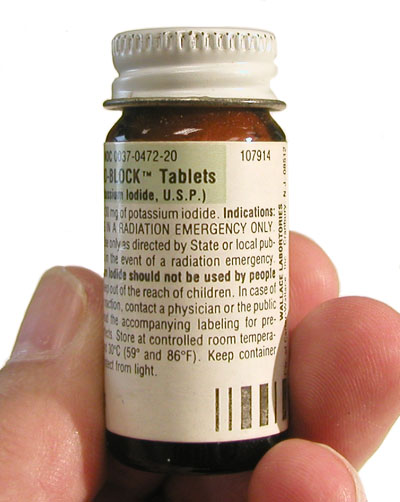Potassium Iodide Thyroid Blocking Agent

The regulations of the Nuclear Regulatory Commission (10 CFR 50.47) state that consideration needs to be given to the distribution of potassium iodide to those populations living within the emergency planning zone (EPZ) around nuclear power plants.
When ingested, much of the potassium iodide (KI) will go to the thyroid and prevent (block) it from accumulating any radioactive iodine that the individual might subsequently be exposed to. The body will still absorb the radioactive iodine, but the latter will be more readily excreted if it does not go to the thyroid.
While radioactive iodine (e.g., I-134 and I-131) is produced in the cores of reactors, it is quite reactive chemically and it tends to plate out on those surfaces with which it comes in contact. As a result, should an accident occur, relatively little iodine might escape the plant and get into the air.
One concern with the distribution of potassium iodide is that some individuals might experience a severe negative reaction to it.
